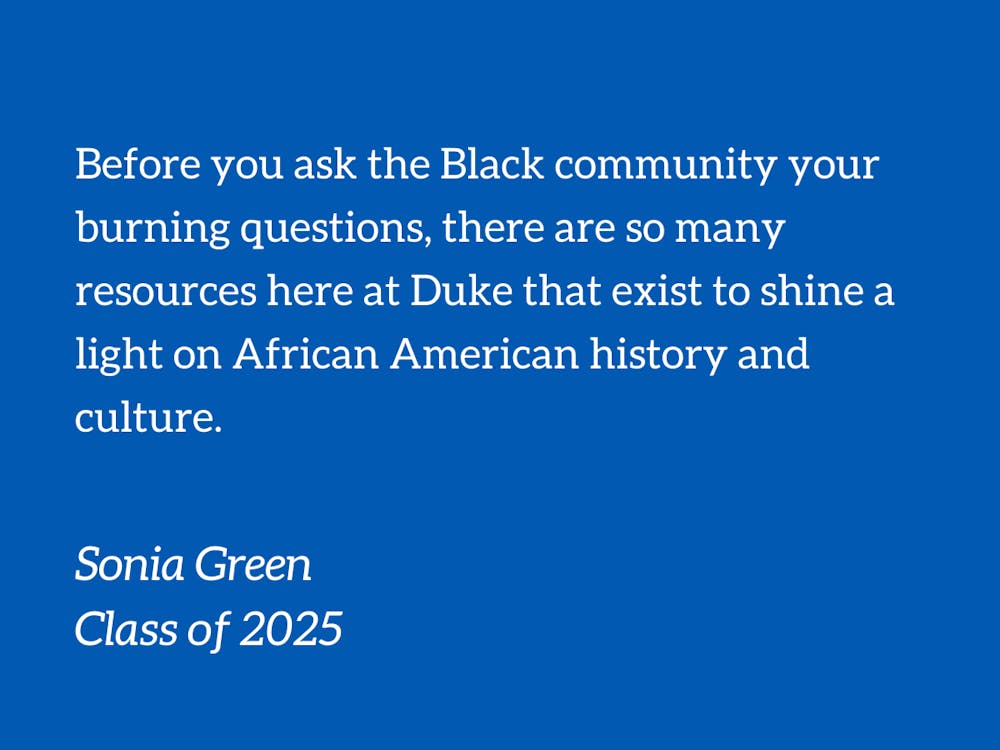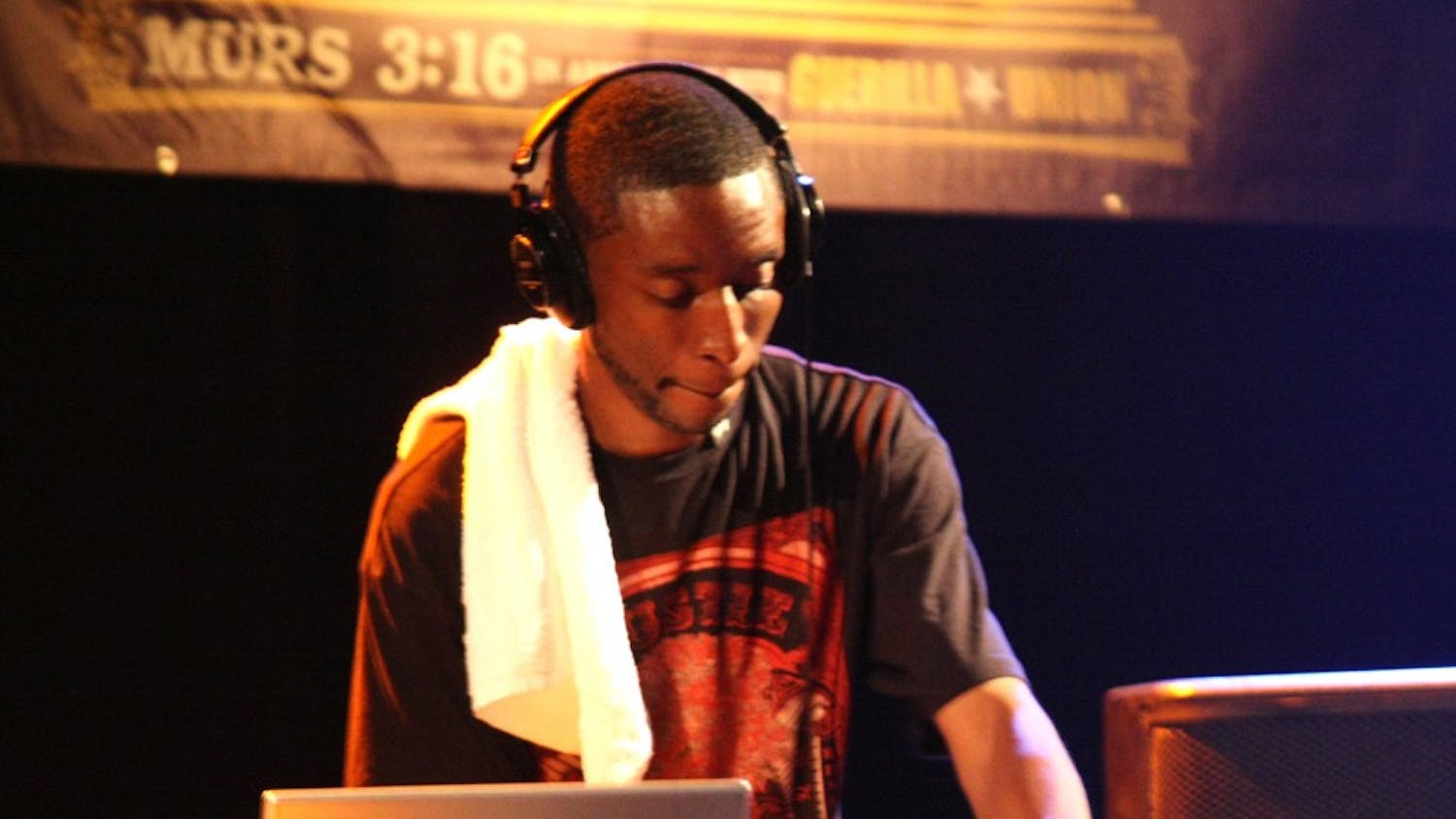To many, Black History Month means commemorating the same three figures (Rosa Parks, Martin Luther King Jr., and maybe Frederick Douglass) and reciting their historical significance. It’s a time for people to bring up hot topics like critical race theory and affirmative action so that they can either position themselves as allies or prove that “they don’t see color." But to others, the month of February means so much more. It is a chance to celebrate the African American community and all of the ways we have contributed to what America is today. This piece is meant to serve as a guide for allies so that they are adequately prepared for ways that they can respectfully celebrate this month with us instead of observing from the sidelines.
The first step to being an ally during Black History Month is to understand the appropriate language to use. At Duke, many people use the term “African American” to describe the entire African Diaspora because it seems they are scared to call the person Black. African Americans make up a small group in a large community. In order to be a true ally, one must educate themselves on what the African Diaspora is and how African Americans fit into this larger story. Not every Black person in America is African American, and labeling them as such erases other cultures within the diaspora and attempts to simplify a complex story.
When it comes to educating yourself about another culture, the task can seem daunting. Some people are open and receptive to your questions, while others do, in fact, believe that stupid questions exist. Both sentiments are valid and deserve to be respected. Before you ask the Black community your burning questions, there are so many resources here at Duke that exist to shine a light on African American history and culture. If you’re looking for general knowledge or have an area of focus (like music, art, or politics) that you’re interested in learning more about, consider taking a course or two in the African & African American Studies department. There are a plethora of extremely knowledgeable men and women who teach courses on many aspects of Blackness. If you’re into podcasts, consider tuning in to Dr. Mark Anthony Neal’s podcast, “Left of Black.” If you’re interested in reading a peer’s perspective, consider following @whatsourdestiny on Instagram, created by fellow Duke student Destiny Benjamin, which “highlights the challenges and successes of African-Americans in both the past and present while looking to the future.”
After you have educated yourself, you can then use this knowledge to be a better ally. Our day-to-day lives often present us with the best opportunities to do this. When you are in class, create space for Black voices. Being one of the only Black students in a classroom is difficult, but it's even worse when your peers talk over you, will not let you speak, or invalidate your opinion. When you grab a meal at WU, smile and say hello to the men and women who serve you your food because you should always be kind to service staff. Finally, respect Black spaces. While they aim to be inclusive, it is extremely disrespectful to monopolize the BSA office or temporary Mary Lou Williams Center to log into a Zoom meeting and ask the Black students using this space to lower their voices so you can focus. These areas are safe spaces for Black students navigating Duke’s predominately white campus, and taking over these places is one of the most disrespectful things that a person can do during Black History Month.
I am proud to be Black. I am proud to be African American. I am excited for this year’s celebration of the Black community and welcome others who would like to celebrate with us as well. There is no way for me to fully explain the complexities of the Black community and describe the ultimate best way to be an ally. This merely serves as a guide, and it is my sincere hope that anyone who reads this and considers themselves to be an ally will take the extra step to educate themselves so that they can better support the Black community.
Sonia Green is a Trinity second-year. Her column typically runs on alternate Tuesdays.
Get The Chronicle straight to your inbox
Signup for our weekly newsletter. Cancel at any time.


